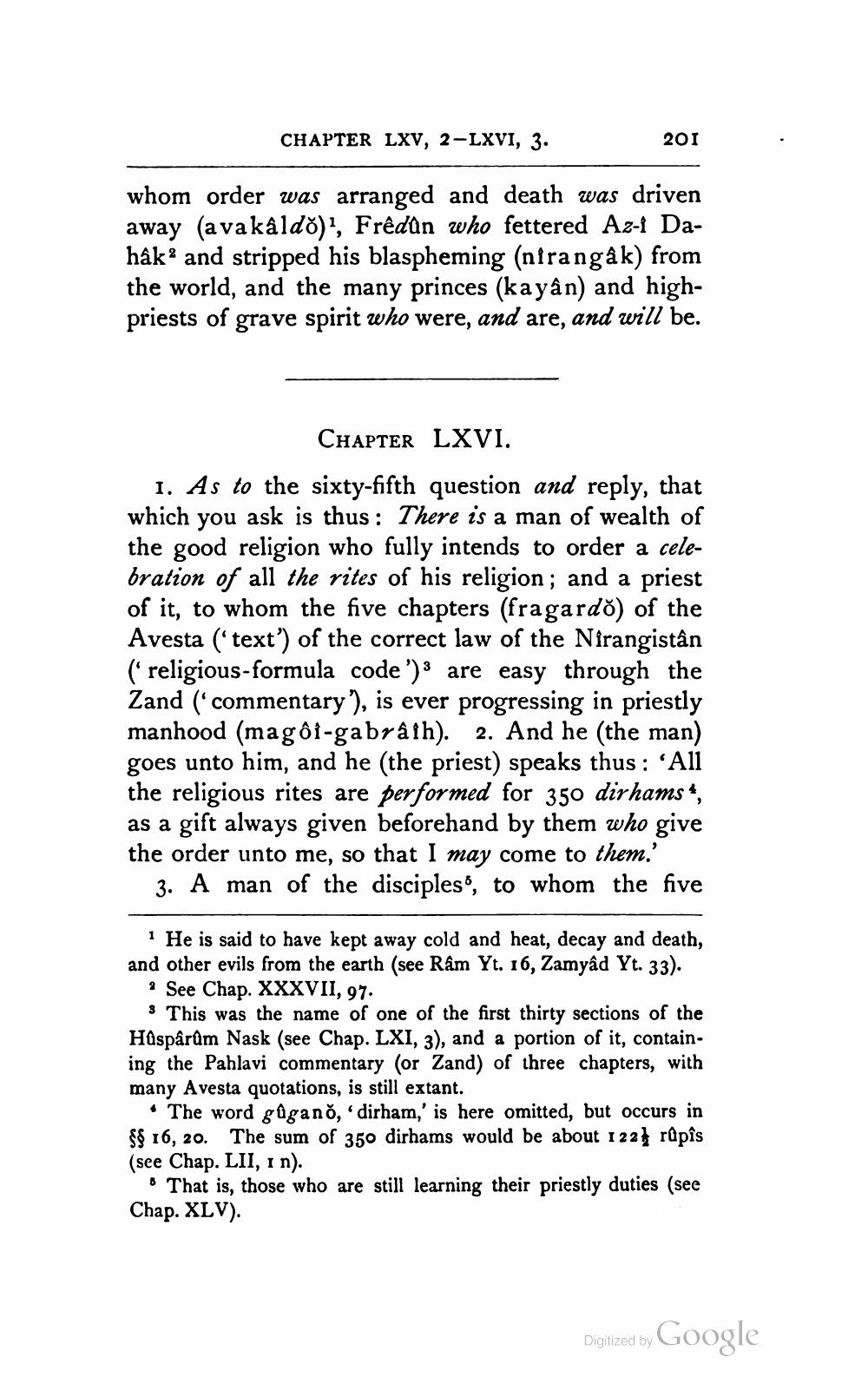________________
CHAPTER LXV, 2-LXVI, 3.
201
whom order was arranged and death was driven away (a vakaldo)", Frêdan who fettered Az-i Dahâkand stripped his blaspheming (nfrangak) from the world, and the many princes (kayân) and highpriests of grave spirit who were, and are, and will be.
CHAPTER LXVI. 1. As to the sixty-fifth question and reply, that which you ask is thus: There is a man of wealth of the good religion who fully intends to order a celebration of all the rites of his religion; and a priest of it, to whom the five chapters (fragardo) of the Avesta ('text') of the correct law of the Nirangistân (religious-formula code ')are easy through the Zand ("commentary), is ever progressing in priestly manhood (magôi-gabrâih). 2. And he (the man) goes unto him, and he (the priest) speaks thus : ‘All the religious rites are performed for 350 dirhams“, as a gift always given beforehand by them who give the order unto me, so that I may come to them.
3. A man of the discipleso, to whom the five
1 He is said to have kept away cold and heat, decay and death, and other evils from the earth (see Ram Yt. 16, Zamyâd Yt. 33).
* See Chap. XXXVII, 97.
8 This was the name of one of the first thirty sections of the Hdspârum Nask (see Chap. LXI, 3), and a portion of it, containing the Pahlavi commentary (or Zand) of three chapters, with many Avesta quotations, is still extant.
• The word gûgano, dirham,' is here omitted, but occurs in $$ 16, 20. The sum of 350 dirhams would be about 122růpis (see Chap. LII, i n).
"That is, those who are still learning their priestly duties (see Chap. XLV).
Digitized by Google




